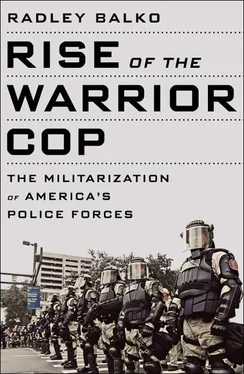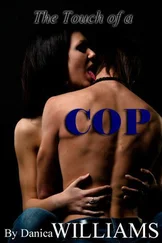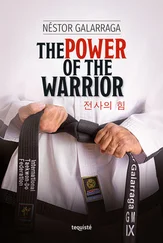That sentiment won the day. The Justice Department withheld the Federal Bureau of Investigation (FBI) data showing improved crime statistics for DC until after Nixon signed the DC crime bill into law. The administration then released the numbers and took credit for them. But the Nixonites also continued to keep the results from the methadone program close to the vest.
But while perception of soaring crime in DC continued to attract support for the crime bill as a whole, the no-knock raid was finally starting to get some attention in the media. New York Times columnist Tom Wicker and syndicated columnist Art Buchwald wrote in opposition to it. 19The Washington Post editorialized that the policy treated the city like a penal colony and that it “ought to be opposed by every action appropriate to men who believe in the rule of law.” 20Even conservative prince William F. Buckley Jr. acknowledged the potential for abuse (although he ultimately came down in favor of it). 21Civil libertarians by then generally agreed that Clark’s opinion in Ker was accepted law and that Nixon’s no-knock proposal didn’t go any further than that. So they were left to oppose the bill on policy grounds. “My honest feeling is that it’s probably constitutional,” ACLU general counsel Norman Dorsen told the New York Times . “But there’s a grave question about the policy behind it.” 22
Santarelli says the most convincing argument for the law was that it merely brought oversight to something that was already happening. “We found out that many police officers had been conducting no-knock raids anyway. Then they’d get to court and explain why the exigent circumstances at the scene allowed them to break in without an announcement. So we were letting police make the subjective decision on-site about whether exigent circumstances existed…. The no-knock law required someone other than police to make the call about exigent circumstances ahead of time. It brought in judicial scrutiny. Or at least it was supposed to.”
But police could still make a decision at the scene to enter without announcing. At worst, a judge might later suppress the evidence. And even that was rare, because it was easy to fake exigent circumstances. A DC judge would later cynically call the no-knock law “an anti-perjury bill,” explaining that “it excuses the officials from saying they knocked” when they hadn’t. 23
The administration might have had an inkling that the tide was turning. In testimony before a House committee in July—at the same time the Senate was again debating the tactic—Mitchell said that without no-knock authority, drug agents would die and “clever and ruthless drug peddlers” could destroy evidence and go free. But what he did next was far more interesting. Mitchell insisted that the very phrase “no-knock raid” was a “catchword” used by people who coddled criminals. Mitchell blamed “erroneous citizens” and “newsmen” for using such sensationalist language. He then asked the committee to start calling the tactic “quick entry,” which he said would be “less misleading and prejudicial.”
This was nonsense. Nixonians themselves had been using the term since his campaign kicked into gear in 1967. More to the point, tough-sounding, no-mercy rhetoric had always been part of their anticrime strategy. They had wanted the media, civil libertarians, and liberals to characterize Nixon’s crime policies in the most draconian terms possible.
The most likely reason Mitchell abandoned that strategy was that the White House sensed that no-knock wasn’t playing well with Nixon’s “ignored” Americans. Until then, tough-on-crime, law-and-order rhetoric had been a winner. Most “ignored” Americans didn’t think of themselves as criminals, and so could never picture themselves in need of a Miranda warning, an empathetic judge, or the advantages of preparing a defense from outside of a jail cell. But the “ignored” Americans had homes. Many were gun owners. And as a demographic group, they were likely to revere the Castle Doctrine. No polling data on no-knock existed at the time, but it seems at least possible that the increased media coverage of the issue caused even staunch crime fighters to see the possible negative consequences to allowing drug cops to go crashing into homes.
Whatever Mitchell may have wanted to accomplish for no-knock by changing its name, for all practical purposes the political debate over no-knock raids in DC was over. Mitchell and Nixon had won. When Tydings made no effort to cut or water down the provision while the bill was in conference committee, it was irrevocably attached to the DC crime bill. Since the House and Senate had to vote on the conference committee bill as a whole—no changes or amendments are permitted in conference committee bills; otherwise, the legislative process would drag on forever—the only way Ervin and his allies could defeat no-knock was to defeat the entire DC crime bill. Circumstances at the time made that an impossible task. Because Mitchell was sitting on the DC crime figures, there was still the perception that crime was rising in the city. The midterm elections were also just a few months away. Even senators who strongly agreed with Ervin about no-knock or preventive detention weren’t ready to sacrifice the entire bill to prevent those policies from passing. Members of the House and Senate who needed to look tough on crime had an incentive to stay and record a vote in favor of the bill. Those who didn’t went home to campaign—or just to take a vacation.
The long odds didn’t faze Ervin. He’d lost on no-knock the first time because too few of the supporters he’d lined up on the Judiciary Committee bothered to show up to vote against it. He’d lost the second time because of a slick parliamentary maneuver. And he’d lose this time because it wasn’t possible to vote against the no-knock measure without also voting against the entire crime bill. But he’d sure as hell put up a fight.
On July 17, 1970, Ervin took the floor and spoke extemporaneously against the bill for four and a half hours. Over the course of an impassioned diatribe on the floor of the Senate, he protested, “Mr. President, the supreme value of civilization is the freedom of the individual, which is simply the right of the individual to be free from government tyranny.” He pleaded with his fellow senators not to enact a bill that contained provisions that were so hostile to the traditions that had prevailed in the United States ever since it became a republic. Once gone, he cautioned, the liberties that the bill threatened would be gone forever. 24
There was some poignant symbolism in Ervin’s sustained philippic. This was a man who over the course of his career had signed “The Southern Manifesto,” railed against Brown v. Board of Education, excoriated the Warren Court, and publicly lamented the criminal-coddling ways of the Johnson administration. Here was a law that at root was part of a mass backlash against the Warren Court, that tapped into public anger over the government being too soft on criminals, and that would primarily and overwhelmingly be utilized against black residents of the District of Columbia. And here was Sam Ervin, standing on the floor of the Senate, passionately orating against it, using notes quickly scribbled on the backs of envelopes to sling obloquy and reproach at the bill’s supporters. Liberals like Dodd and Tydings had sold out DC to get reelected. For black folks in the District of Columbia, the biggest, loudest, most potent force keeping the cops from crashing through their doors was Sam Ervin, the country lawyer, folksy Bible-thumper, and only recently reformed segregationist.
But the bill passed easily. Nixon signed the DC crime bill into law on July 29. 25A few months later, Ervin put up yet another fight when the no-knock raid omnibus drug bill for the entire country came before the Senate in October. He lost that one too, 42–20. More than a third of the Senate didn’t stick around to vote. In his autobiography, Ervin writes that he warned his colleagues that the no-knock measures “would be grossly abused by complaisant magistrates and over-zealous officers, and that in consequence, both householders and officers would suffer death, and humble, law-abiding people would be unnecessarily harassed by no-knock raids upon their homes.” 26
Читать дальше












